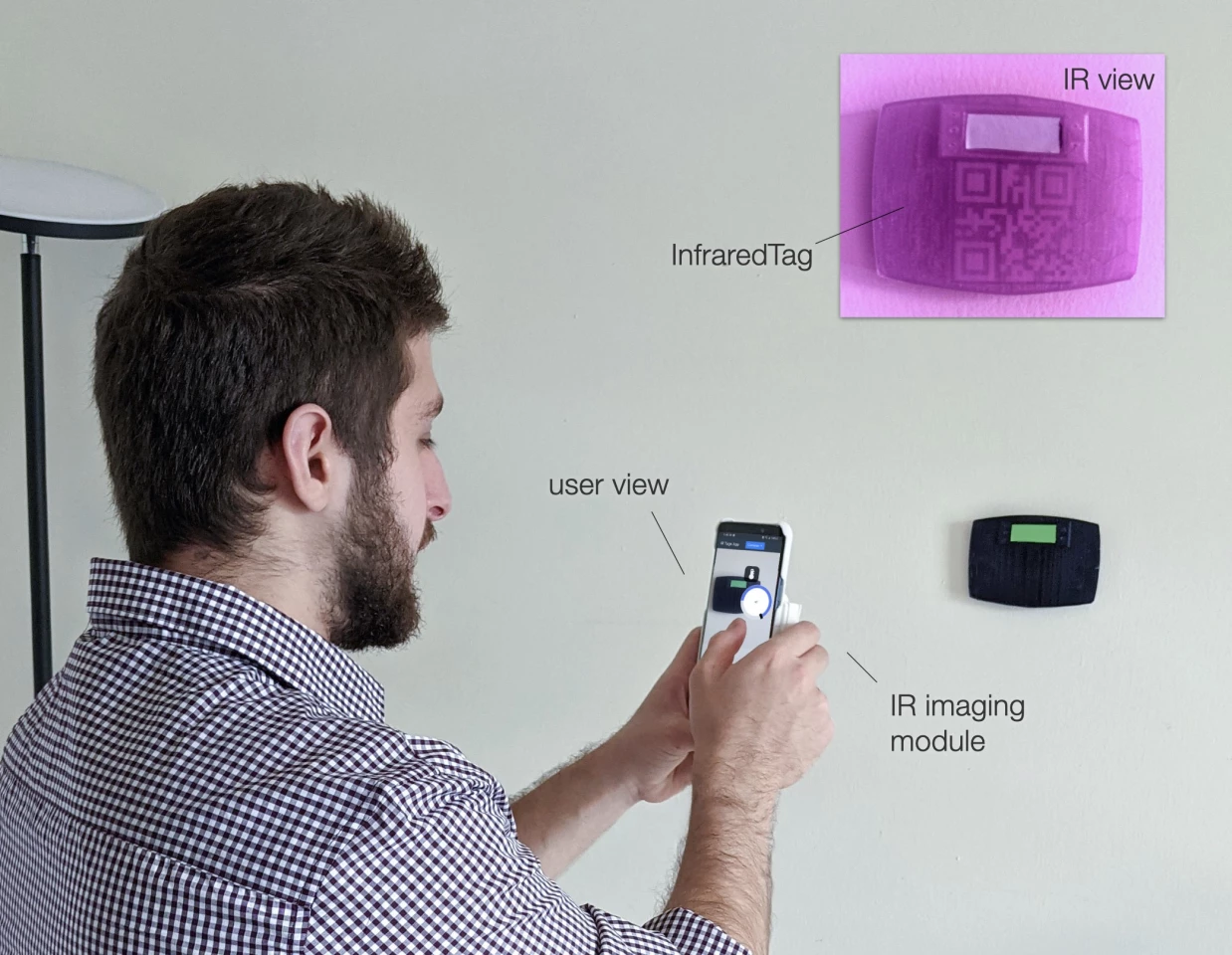Barcode stickers may provide valuable information on products, but they're rather unsightly, and they peel off over time. An experimental new alternative, however, is 3D-printed right into the item, and is invisible to the naked eye.
Known as InfraredTags, the technology is being developed by an MIT team led by PhD student Mustafa Doga Dogan. He got the idea when he heard about a new smartphone which incorporates an infrared-imaging camera.
Dogan's system incorporates an existing commercial 3D-printing plastic filament, which is opaque to visible light but lets infrared light pass right through. It allows data to be embedded in either of two ways.
One approach involves carving a pattern of tiny air gaps out of a layer of the plastic, which is covered with a smooth protective outer layer. The gaps represent ones and zeroes, so they can be read by an infrared camera as binary code.
Another approach involves utilizing a second plastic – one which is opaque to infrared light – to create more traditional barcodes or QR codes. Again, these are covered with an outer layer of the main plastic, so they're not visible unless exposed to infrared light and imaged by an infrared-sensitive camera.

So far, Dogan and his team have created items such as mugs with embedded barcodes, a Wi-Fi router with embedded tags that reveal the network name or password (depending on the imaging angle), and even an inexpensive video game controller. The lattermost incorporates a cheap infrared camera mounted on a control wheel – as the wheel is turned to the left or right, the camera is able to ascertain the wheel's position by imaging a barcode embedded inside the controller.
It is hoped that down the road, InfraredTags could also be incorporated into things like smartphone-controlled devices, or augmented reality glasses that would provide their wearers with information on products in stores.
The research is described in a paper which will be presented this spring in New Orleans, at the ACM CHI Conference on Human Factors in Computing Systems.
Source: MIT





